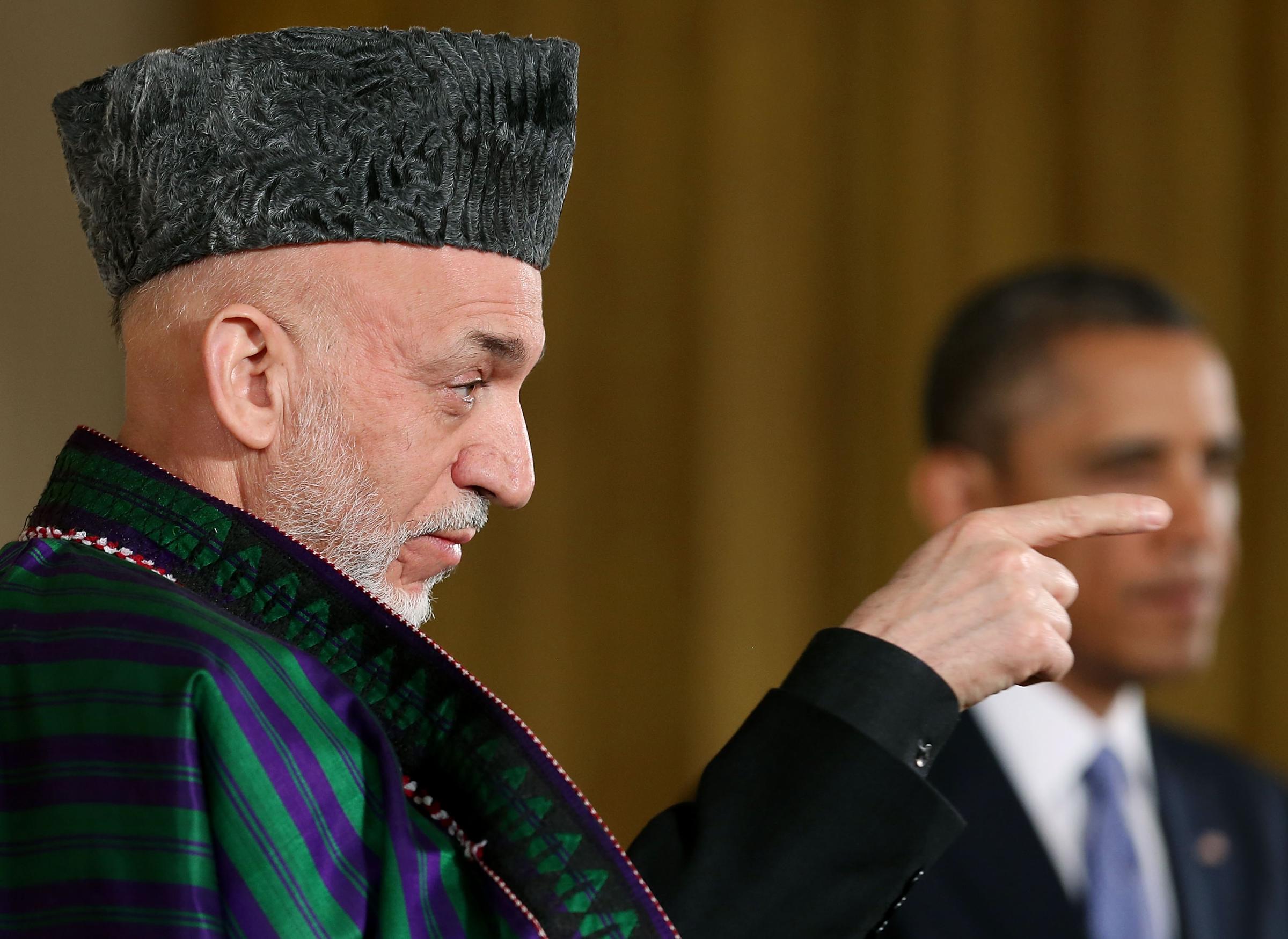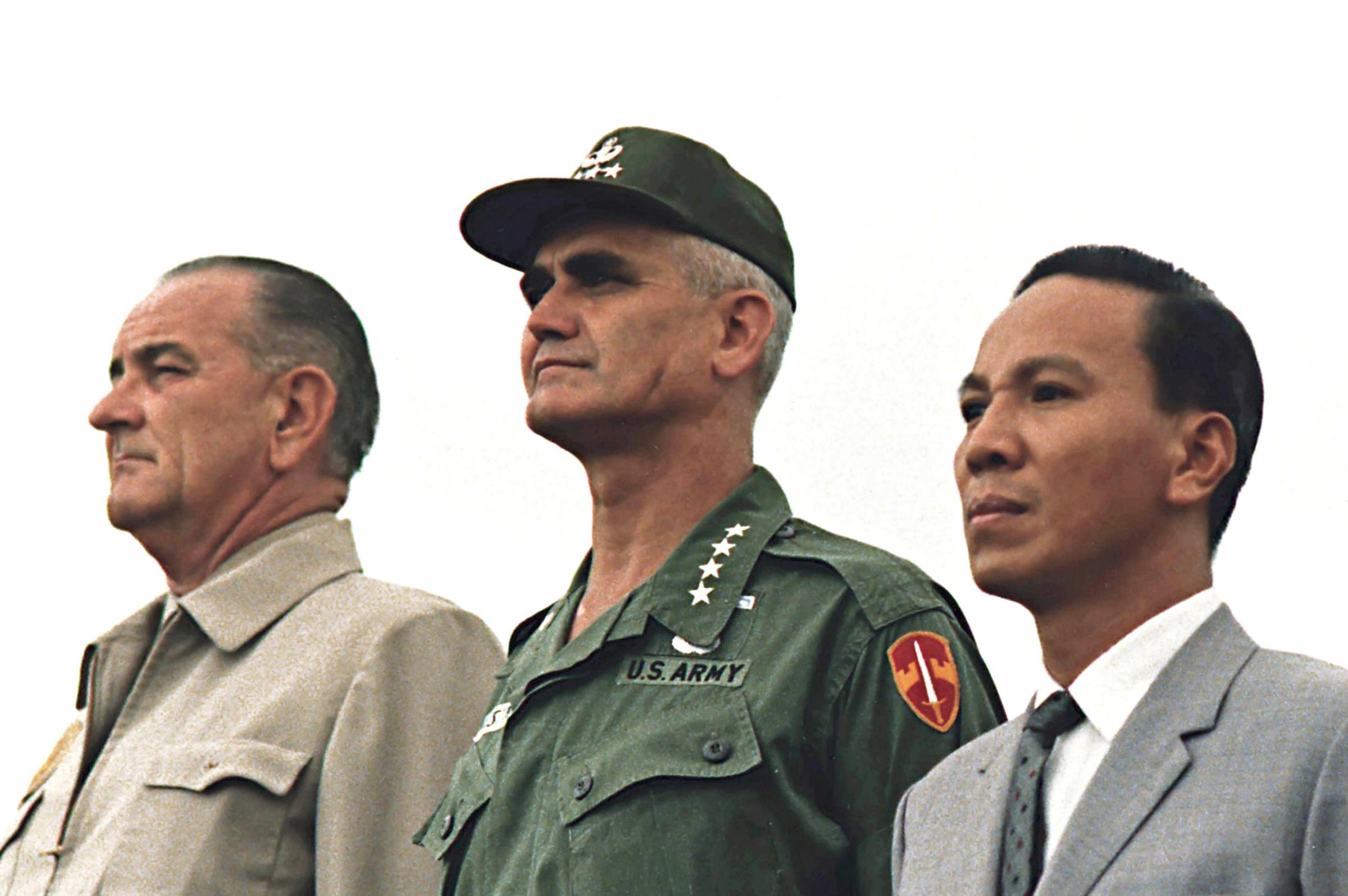
For years, despite the massive investment of U.S. lives and treasure in Afghanistan, President Hamid Karzi has been derided as the “major of Kabul,” given his central government’s impotence elsewhere in the country.
For days, despite an even greater of U.S. blood and treasure in Iraq, Prime Minister Nouri al-Maliki is now being referred to in some quarters as the “mayor of Baghdad.” (And, according to military author Tom Ricks, even that overstates the real estate he rules.)
This is a not a good outcome for Washington, which provided the security and built the infrastructure that enabled elections to put both men in charge.

It’s the realpolitik that is keeping U.S. firepower largely sidelined in Iraq: if great swaths of such countries don’t care if their purported leader is relegated to a bürgermeister in his own land, why should the U.S. do even more to let him retain his hold on the government’s reins?
It’s a pertinent question as the Islamic State of Iraq and Syria joins with some of Saddam Hussein’s army officers in an alliance of convenience to attack Baghdad. The time has come to reap the seeds the U.S. sowed.
Soon after the U.S.-led invasion in 2003, Washington disbanded the Iraqi army and barred high-level Baathists from participating the new government. Saddam and his Sunni allies had brutally oppressed Iraq’s Shi’a majority for 24 years. When the Shi’a gained power, they—led by Maliki—took it out on their long time tormenters. Unwilling to share power and resources, Maliki sparked the current crisis.
“What we’re not going to be able to do is to play Whac-A-Mole and chase wherever extremists appear, occupy those countries for long periods of time, and think somehow that we’re going to solve those problems,” President Obama said Monday on MSNBC. “That’s something that, even as the world’s lone superpower, exceeds our capabilities.”
That’s debatable.
What’s not debatable are the echoes of Saigon in both Baghdad and Kabul. The final U.S. troops in Vietnam headed for home in 1973. Two years later, the North Vietnamese pressed south toward the capital of Saigon, from where Nguyen Van Thieu ruled.
As the North gobbled up more territory, Thieu issued muddled orders that left his military adrift amid North Vietnam’s relentless push toward the capital. The South abandoned cities and military outposts, much as the Iraq army has done over the past two weeks.
As the enemy drew closer, Thieu confided in fewer advisers, and blamed his country’s fate on the U.S. “You Americans with your 500,000 soldiers in Vietnam! You were not defeated,” he declared. “You ran away!” Five days later, Thieu did the same, fleeing to Taiwan. Four days later, on April 30, 1975, South Vietnam vanished as the North won the war.

Thieu eventually settled in Boston, where he died on Sept. 29, 2001 at the age of 76, two weeks after the attacks of 9/11 that triggered the U.S. wars in Afghanistan and Iraq.
All three leaders ran, or are running, governments riddled with corruption that lost the support of the governed, especially once billions in U.S. military spending stopped.
But it would be wrong to look at the Vietnam and Iraq conflicts through the same lens.
The U.S. government sold the Vietnam war to the American public as necessary to stop the spread of communism. In reality, it was more about nationalism. A total of 58,286 U.S. troops died fighting for that cause, which was limited, in any event, to southeast Asia.
But ISIS has made clear it wants to establish a caliphate straddling the Syrian-Iraq border, where it or other terrorist groups could plot attacks against the U.S. A total of 4,486 U.S. troops—8% of Vietnam’s toll—died in Iraq. The threat there is morphing into something more dangerous to the U.S. homeland than Vietnam ever was. Yet the American public has made clear it wants its government launching no major military action designed to destroy ISIS.
The U.S. public is blind, or wise.
More Must-Reads from TIME
- Why Biden Dropped Out
- Ukraine’s Plan to Survive Trump
- The Rise of a New Kind of Parenting Guru
- The Chaos and Commotion of the RNC in Photos
- Why We All Have a Stake in Twisters’ Success
- 8 Eating Habits That Actually Improve Your Sleep
- Welcome to the Noah Lyles Olympics
- Get Our Paris Olympics Newsletter in Your Inbox
Contact us at letters@time.com